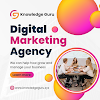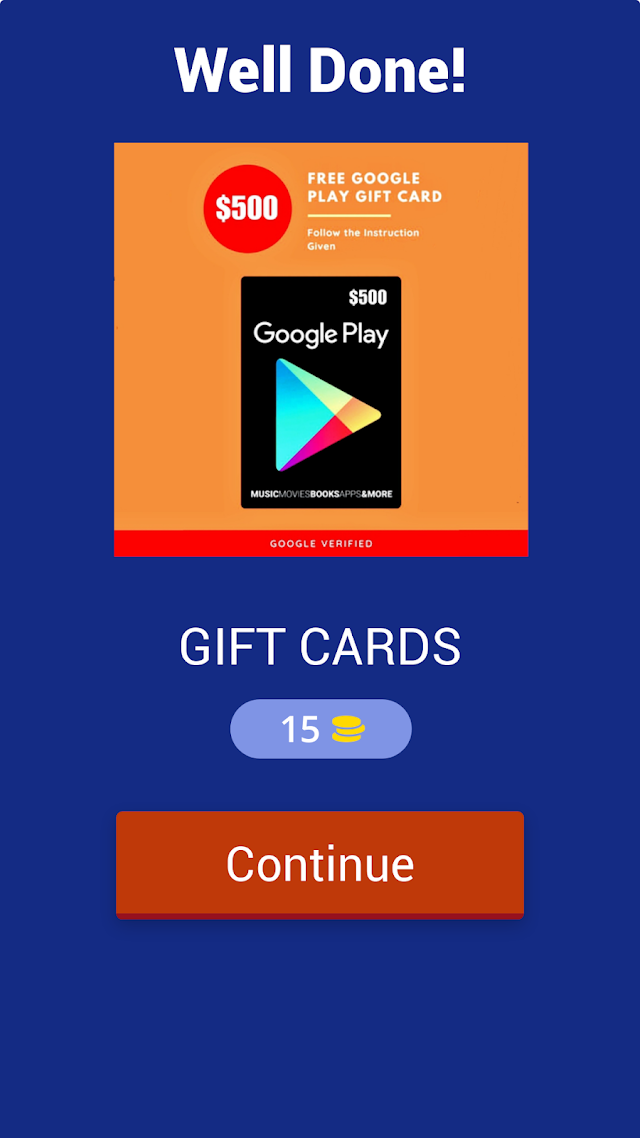Building a successful and best digital marketing service requires a combination of expertise tools, strategies, and tools. Here are some of the most helpful sources for a successful digital marketing company
Digital marketing is the use of online channels to promote and sell products or services, including website design, SEO, PPC advertising, social media marketing, content marketing, email marketing, affiliate marketing, and influencer marketing. The goal is to reach the target audience where they spend their time online, deliver relevant and engaging messages, and increase sales. Benefits of digital marketing include reaching a wider audience, targeting the right audience, measuring results, and being cost-effective. Examples include clothing companies using SEO to rank higher in search engine results, software companies using PPC advertising, restaurants using social media marketing, travel companies using content marketing, and e-commerce companies using email marketing.
The main soul of marketing and advertising is to reach out to the people who need your offerings, not just selling to everyone possible. Check these basic ground rules of digital marketing and advertising.
1. Know Your Audience: Picture this: my client runs a small bakery, and she knows her most loyal customers by name. In the digital world, it's like knowing your online audience inside and out. Understand their demographics, interests, and behavior. Did you know that 73% of consumers prefer to buy from brands that personalize their shopping experience? Knowing your audience is key.
2. Content is King: Think of your content as the star of the show. Just like in my bakery, where the aroma of freshly baked bread drew people in, your content should be enticing. High-quality, relevant content that addresses your audience's pain points is what you need. Content marketing gets three times more leads than paid search advertising.
3. SEO - The Roadmap: SEO is your trusty map, leading people to your digital doorstep. Just as I needed clear signage to guide folks to my bakery, you need search engine optimization to make sure people can find your online presence. In fact, 68% of online experiences begin with a search engine.
4. Social Media Engagement: Social media is like word of mouth in the digital age. Remember when happy customers at my bakery would tell their friends about the mouthwatering pastries? Use social media to interact with your audience, share content, and build relationships. Did you know that 73% of marketers believe social media marketing is somewhat or very effective for their business?
5. Paid Advertising: Paid ads are like putting up a billboard near my bakery to attract more foot traffic. Whether it's Google Ads or social media ads, they can expand your reach. In fact, 45% of small businesses invest in paid advertising.
6. Email Marketing: Emails are your personalized invitations. Just as I would send special offers to my loyal customers, you can build an email list and send tailored messages. Email marketing has an impressive average ROI of $42 for every $1 spent.
7. Analytics and Data: Analytics is like keeping a close eye on your bakery's daily sales. In the digital realm, it's crucial to track your efforts. Use tools like Google Analytics to measure the performance of your online activities. Nearly 75% of businesses consider data analysis very important for their marketing success.
8. Consistency is Key: Remember how I'd open my bakery every day at the same time? Consistency matters online too. Stick to a content schedule, be regular on social media, and deliver emails on time. Consistency builds trust and keeps your audience engaged.
So, Read More
- Target Audience Identification and Understanding: Effective digital marketing and online advertising campaigns begin with a clear understanding of the target audience. This involves identifying their demographics, interests, online behavior, and pain points. By understanding their needs and desires, you can tailor your messaging and strategies to resonate with them effectively.
- Goal Setting and Measurement: Establishing clear and measurable goals is essential for any digital marketing or online advertising campaign. Determine what you aim to achieve, whether it's increasing website traffic, generating leads, or boosting sales. Define metrics to track progress, such as click-through rates, conversion rates, and return on investment (ROI).
- Strategic Channel Selection: The digital landscape offers a wide range of channels for marketing and advertising, including websites, social media platforms, search engines, and email marketing. Carefully select the channels that align with your target audience's preferred platforms and your overall marketing goals.
- Compelling and Relevant Content Creation: Content is the driving force behind successful digital marketing and online advertising. Create engaging, informative, and relevant content that resonates with your target audience and aligns with your brand identity. Use a variety of formats, such as blog posts, infographics, videos, and social media posts, to cater to different preferences.
- Search Engine Optimization (SEO): SEO involves optimizing your website and content to rank higher in search engine results pages (SERPs). This increases the visibility of your website and drives organic traffic from potential customers searching for relevant information.
- Pay-per-Click (PPC) Advertising: PPC advertising involves placing ads on search engines, social media platforms, and other websites. You pay a fee each time someone clicks on your ad. PPC allows you to target specific demographics and keywords, making it a cost-effective way to reach your target audience.
- Email Marketing: Email marketing remains a powerful tool for nurturing relationships with potential customers and promoting products or services. Build an email list with opt-in subscribers and send regular, personalized emails that provide value and encourage engagement.
- Social Media Marketing: Social media platforms offer a direct connection with your target audience. Create engaging content, participate in relevant conversations, and use social media advertising to target specific demographics and interests.
- Analytics and Data-Driven Decision Making: Regularly monitor your campaign performance using analytics tools. Track metrics such as website traffic, engagement rates, and conversion rates. Use insights from data to refine your strategies and optimize your campaigns for better results.
- A/B Testing and Experimentation:
A/B testing involves comparing two versions of a website, ad, or email to determine which one performs better. Experiment with different elements to identify the most effective approach for your target audience.
- Continuous Learning and Adaptability:
The digital marketing landscape is constantly evolving. Stay up-to-date on industry trends, emerging technologies, and new marketing strategies. Adapt your approach to remain relevant and effective.
- Customer-Centric Approach:
Prioritize customer satisfaction and engagement throughout your digital marketing efforts. Respond to feedback, address concerns, and provide excellent customer service to build trust and loyalty.
- Measuring and Optimizing ROI:
Regularly evaluate the return on investment (ROI) of your digital marketing and online advertising campaigns. Identify areas for improvement and optimize your strategies to maximize the return on your marketing budget.
Online Courses:
Websites like Coursera, Udemy, and edX provide online marketing courses that you can take on the Internet. They provide you with online marketing and social media courses, among other things.
Free Courses:
HubSpot Academy offers free online classes on topics such as Content marketing, and social media.
Websites and Blogs:
Moz is a great way to learn how to make your site search engine-friendly.
Neil Patel's blog gives helpful tips on a range of marketing topics.
Search Engine Journal is great to keep you updated about the latest developments in the field of search engine marketing.
Books:
"Contagious" by Jonah Berger explains why certain items are well-known online.
"Influence" by Robert Cialdini will show how to persuade people who are important when it comes to marketing.
Tools:
Google Analytics helps you determine how visitors interact with your site.
MailChimp, HubSpot, or SendinBlue are perfect for sending messages to customers.
SEMrush and Ahrefs aid you in understanding your competitors and can help improve your site's rank on Google.
Hootsuite or Buffer lets users control and schedule posts on social media networks.
Canva is a program to create attractive images.
Online Communities:
There are communities on the internet like Reddit (DigitalMarketing and r/SEO) or the Warrior Forum to talk to other marketers and to receive suggestions.
Podcasts:
Take a listen to audio podcasts like "Marketing Over Coffee" and "Call to Action" to discover more about marketing mobile.
News Websites:
Websites like Marketing Land, Adweek, and AdAge provide news about advertising and marketing.
Social Media:
Follow advertising and marketing experts on social media platforms like Twitter and LinkedIn to get the latest information and news.
Certifications:
Learn to become certified on platforms such as Google Ads, Google Analytics and Facebook Blueprint to show you how you can succeed.
Networking:
Participate in events related to marketing and join local groups for marketing to meet other professionals.
Online Courses:
Find simple-to-follow classes on websites like LinkedIn Learning and Skillshare.
Digital Marketing Podcasts:
Take a listen to podcasts like "Marketing School" for quick marketing tips.
Case Studies:
Check out some examples of marketing campaigns that have been successful and take lessons from them.
Webinars:
Utilize webinars (online seminars) by experts in marketing to keep up-to-date with the current trends.
Magazines:
Read magazines like "Knowledge Guru Review" for articles on marketing.
Remember that marketing in digital form is always changing and it is essential to keep learning and improving to stay competitive in this field.









0 Comments